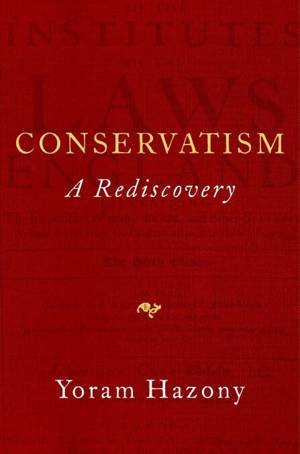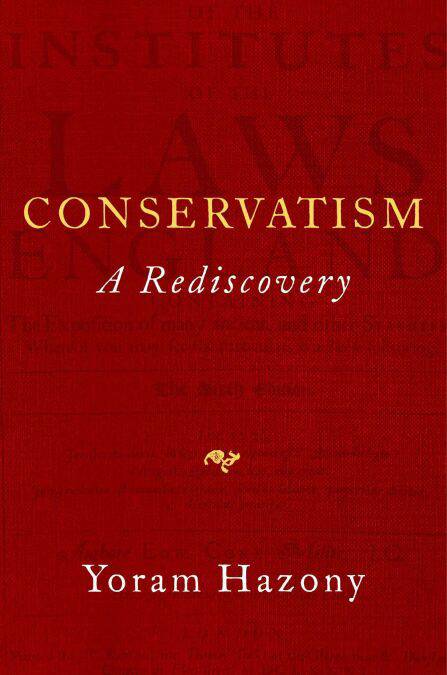
Je cadeautjes zeker op tijd in huis hebben voor de feestdagen? Kom langs in onze winkels en vind het perfecte geschenk!
- Afhalen na 1 uur in een winkel met voorraad
- Gratis thuislevering in België vanaf € 30
- Ruim aanbod met 7 miljoen producten
Je cadeautjes zeker op tijd in huis hebben voor de feestdagen? Kom langs in onze winkels en vind het perfecte geschenk!
- Afhalen na 1 uur in een winkel met voorraad
- Gratis thuislevering in België vanaf € 30
- Ruim aanbod met 7 miljoen producten
Zoeken
Omschrijving
The idea that American conservatism is identical to "classical" liberalism—widely held since the 1960s—is seriously mistaken.
The award-winning political theorist Yoram Hazony argues that the best hope for Western democracy is a return to the empiricist, religious, and nationalist traditions of America and Britain—the conservative traditions that brought greatness to the English-speaking nations and became the model for national freedom for the entire world.
Conservatism: A Rediscovery explains how Anglo-American conservatism became a distinctive alternative to divine-right monarchy, Puritan theocracy, and liberal revolution. After tracing the tradition from the Wars of the Roses to Burke and across the Atlantic to the American Federalists and Lincoln, Hazony describes the rise and fall of Enlightenment liberalism after World War II and the present-day debates between neoconservatives and national conservatives over how to respond to liberalism and the woke left.
Going where no political thinker has gone in decades, Hazony provides a fresh theoretical foundation for conservatism. Rejecting the liberalism of Hayek, Strauss, and the "fusionists" of the 1960s, and drawing on decades of personal experience in the conservative movement, he argues that a revival of authentic Anglo-American conservatism is possible in the twenty-first century.
The award-winning political theorist Yoram Hazony argues that the best hope for Western democracy is a return to the empiricist, religious, and nationalist traditions of America and Britain—the conservative traditions that brought greatness to the English-speaking nations and became the model for national freedom for the entire world.
Conservatism: A Rediscovery explains how Anglo-American conservatism became a distinctive alternative to divine-right monarchy, Puritan theocracy, and liberal revolution. After tracing the tradition from the Wars of the Roses to Burke and across the Atlantic to the American Federalists and Lincoln, Hazony describes the rise and fall of Enlightenment liberalism after World War II and the present-day debates between neoconservatives and national conservatives over how to respond to liberalism and the woke left.
Going where no political thinker has gone in decades, Hazony provides a fresh theoretical foundation for conservatism. Rejecting the liberalism of Hayek, Strauss, and the "fusionists" of the 1960s, and drawing on decades of personal experience in the conservative movement, he argues that a revival of authentic Anglo-American conservatism is possible in the twenty-first century.
Specificaties
Betrokkenen
- Auteur(s):
- Uitgeverij:
Inhoud
- Aantal bladzijden:
- 256
- Taal:
- Engels
Eigenschappen
- Productcode (EAN):
- 9781684511105
- Verschijningsdatum:
- 16/05/2022
- Uitvoering:
- E-book
- Beveiligd met:
- Adobe DRM
- Formaat:
- ePub

Alleen bij Standaard Boekhandel
+ 16 punten op je klantenkaart van Standaard Boekhandel
Beoordelingen
We publiceren alleen reviews die voldoen aan de voorwaarden voor reviews. Bekijk onze voorwaarden voor reviews.









